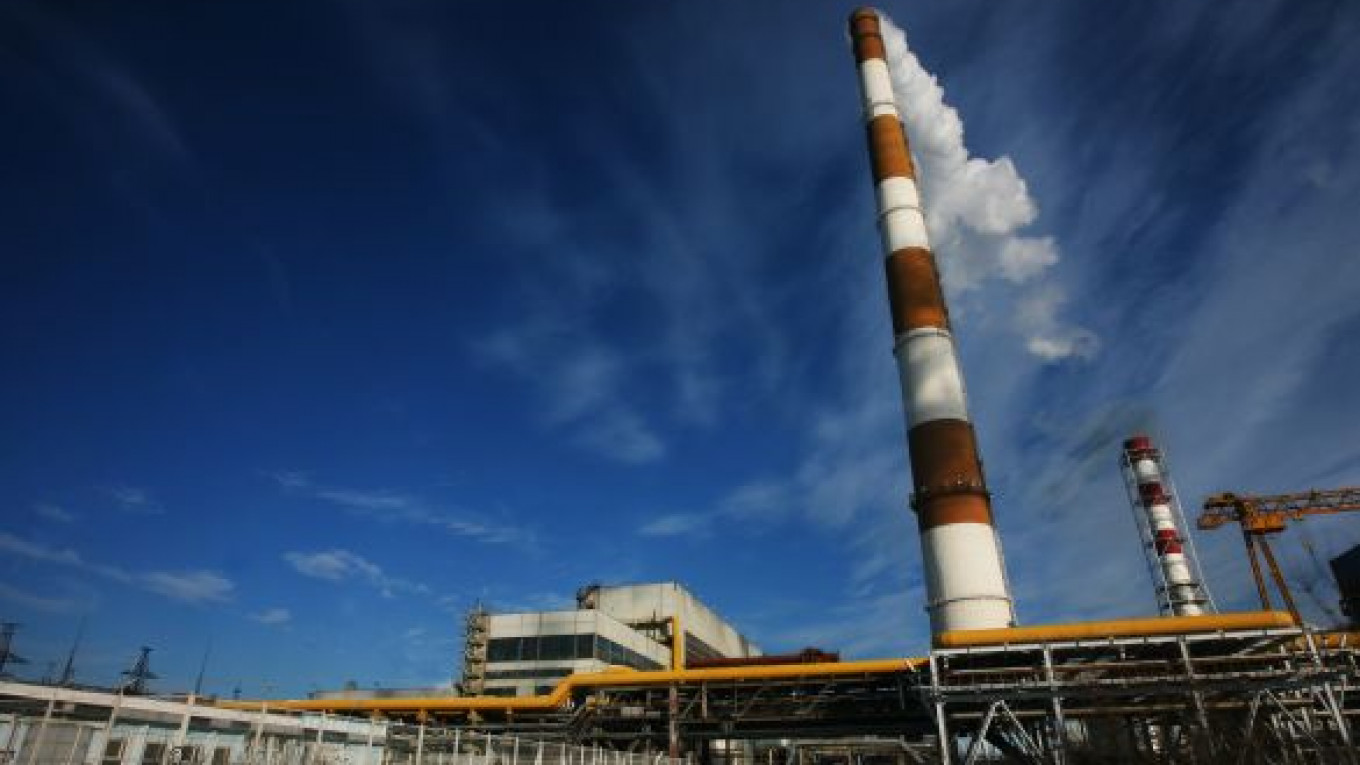Representatives of the Russian Union of Industrialists and Entrepreneurs, the Economic Development Ministry and state-owned banks VTB and Sberbank have made a joint call for the government to rethink its refusal to sign the Kyoto 2 environmental treaty.
At a meeting on the issue hosted by the Higher School of Economics last week, delegates from several financial institutions and business groups said they would pass along their recommendation that Russia join Kyoto 2 to presidential adviser and former Economic Development Minster Elvira Nabiullina this week.
Russia joined Canada and Japan in refusing to take on further targets in the second implementation period of the Kyoto Protocol at the climate summit in Durban, South Africa, in December, complaining that a treaty that did not bind the world's two largest emitters of greenhouse gases was pointless.
Both the United States and China have refused to take on obligations under the treaty, which is meant to fight climate change by setting targets to reduce global emissions of greenhouse gases.
But supporters of the treaty say the decision to abandon Kyoto has simply locked Russia out of a potentially lucrative carbon market.
Russia has saved up some 6 billion tons of carbon dioxide to sell, with a value of 30 billion euros ($39 million), assuming a price of 5 euros per ton, Georgy Safarov of the Higher School of Economics' Center for Environmental Economics told last week's gathering.
Vsevolod Gavrilov of Sberbank, which was appointed to regulate the market by the government and effectively acts as the go-between for Russian companies and foreign buyers of the quotas, said that to date Russian companies have earned only about $600 million from carbon credit sales.
However, prices for certified emission reduction units, the tradable derivatives that represent savings, have fallen dramatically over the past year, making the 5 euro figure optimistic. CERS for 2012 were trading at 1.58 euros per metric ton at the ICE Futures Europe Exchange in London on Wednesday afternoon.
Signatories to the Kyoto Protocol are committed to cut carbon emissions to 5 percent below 1990 levels, while countries that slash their emissions further can sell "carbon credits," effectively a license to use the remainder of the quota, to other nations that signed the treaty.
Russia's emission levels nose-dived because of an industrial collapse following the break-up of the Soviet Union in 1991, and they continued to fall until 2000. Although emissions have begun to rise in the past decade, they were still 35 percent below 1990 levels in 2010, according to UN figures.
While the pro-Kyoto businessmen and financiers plan to lobby Nabiullina, other close presidential advisers are likely to oppose the measure.
Government officials have denied press reports that they might cave in to business lobbying and join the second implementation period, which begins on Jan. 1.
Alexander Bedritsky, the presidential adviser who headed the Russian delegation in Durban that rejected Kyoto 2, said last month that the refusal was "a political decision at the highest level" and would not be reversed.
Bedritsky, who backs an internal cap-and-trade scheme as an alternative, has accused a handful of companies of lobbying for Kyoto because it suits their interests.
"They feed the illusion that in the second period of the Kyoto Protocol they will sell quotas and do projects as in the European market," Kommersant quoted him as saying. "This is an illusion. The EU is not interested in these activities with us."
An interagency group has been working on proposals for an internal cap-and-trade scheme since April.
The scheme would seek to meet the government's commitment to increase the efficiency of energy consumption to GDP by 40 percent by 2020.
The next round of international climate talks is scheduled to start in Doha, Qatar, in late November.
Related articles:
A Message from The Moscow Times:
Dear readers,
We are facing unprecedented challenges. Russia's Prosecutor General's Office has designated The Moscow Times as an "undesirable" organization, criminalizing our work and putting our staff at risk of prosecution. This follows our earlier unjust labeling as a "foreign agent."
These actions are direct attempts to silence independent journalism in Russia. The authorities claim our work "discredits the decisions of the Russian leadership." We see things differently: we strive to provide accurate, unbiased reporting on Russia.
We, the journalists of The Moscow Times, refuse to be silenced. But to continue our work, we need your help.
Your support, no matter how small, makes a world of difference. If you can, please support us monthly starting from just $2. It's quick to set up, and every contribution makes a significant impact.
By supporting The Moscow Times, you're defending open, independent journalism in the face of repression. Thank you for standing with us.
Remind me later.


